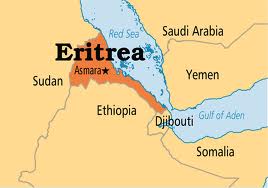By The International Crisis Group
OVERVIEW
The large emigration of youths is the clearest sign of extreme domestic discontent with Eritrean President Isaias Afwerki’s government. Social malaise is pervasive. An ever-growing number of young people have fled over the last decade, frustrated by open-ended national service – initiated in 1995 and expanded during the war with Ethiopia (1998-2000). Yet, this flight has resulted in neither reforms nor a viable movement to create an alternative to the current government. Once outside, the ties that bind émigrés to their birthplace are strong and lead them to give financial support to the very system they escaped, through the 2 per cent tax many pay the state as well as remittances sent home to family members.
 Asmara’s response to the exodus, though always focused on mitigating its effects so as to ensure regime survival, has evolved in recognition of its uses. After initial, sometimes brutal attempts to obstruct emigration, a symbiotic system has emerged that benefits a range of actors, including the state. The government ostensibly accepts that educated, urbanised youths resistant to the individual sacrifices the state demands are less troublesome and more useful outside the country – particularly when they can continue to be taxed and provide a crucial social safety net for family members who stay home. Meanwhile, those who remain tend to be the more pliant rural peasant and pastoralist population. Yet, the exodus is not limited to urbanised and educated youth; migrants, including an increasing number of minors, now come from a wider cross-section of society.
Asmara’s response to the exodus, though always focused on mitigating its effects so as to ensure regime survival, has evolved in recognition of its uses. After initial, sometimes brutal attempts to obstruct emigration, a symbiotic system has emerged that benefits a range of actors, including the state. The government ostensibly accepts that educated, urbanised youths resistant to the individual sacrifices the state demands are less troublesome and more useful outside the country – particularly when they can continue to be taxed and provide a crucial social safety net for family members who stay home. Meanwhile, those who remain tend to be the more pliant rural peasant and pastoralist population. Yet, the exodus is not limited to urbanised and educated youth; migrants, including an increasing number of minors, now come from a wider cross-section of society.
Official recognition is growing in Eritrea that despite the side-benefits, the level of the exodus is unsustainable, not least for maintaining support from political constituencies at home and in the diaspora. The burden of ever greater numbers arriving in neighbouring countries and further afield – including on Europe’s southern shores, where over-filled boats regularly sink, drowning many migrants – also demands action by affected states. Ending the exodus requires greater engagement with Eritrea – potentially ending a decade of isolation that has been both self-imposed and externally-generated – as well as ameliorating a growing internal crisis.
Crisis Group reporting has previously outlined the regional implications of that growing crisis and recommended that, in order to confront the problems of which the continuing human exodus is a clear sign, Eritrea, with help from international partners, especially the European Union (EU) and UN, should consider:
– Re-visiting previous plans and updating options for gradual demobilisation, especially of national servicemen and women;
– Re-opening political space gradually by implementing the long-delayed 1997 constitution; and
– Allowing for a gradual restructuring of the economy to enhance job prospects for the youth, and following through on offers to the diaspora to encourage direct investment.
The International Crisis Group
We welcome the submission of all articles for possible publication on WardheerNews.com. WardheerNews will only consider articles sent exclusively. Please email your article today . Opinions expressed in this article are those of the author and do not necessarily reflect the views of WardheerNews.
WardheerNew’s tolerance platform is engaging with diversity of opinion, political ideology and self-expression. Tolerance is a necessary ingredient for creativity and civility.Tolerance fuels tenacity and audacity.
WardheerNews waxay tixgelin gaara siinaysaa maqaaladaha sida gaarka ah loogu soo diro ee aan lagu daabicin goobo kale. Maqaalkani wuxuu ka turjumayaa aragtida Qoraaga loomana fasiran karo tan WardheerNews.
Copyright © 2024 WardheerNews, All rights reserved


